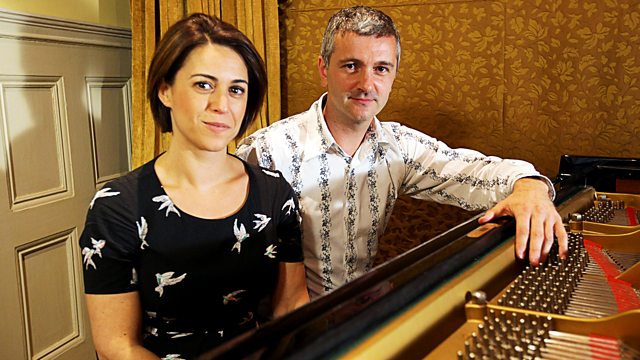
Talkin' 'Bout a Revolution
Series in which Suzy Klein explores the transformation of music in the 19th century. She shows how it became a revolutionary force that changed the world.
In the 19th century, as Suzy Klein shows in the second episode of the series, music wasn't just a backdrop to life, easing pain and enhancing pleasure. It became a revolutionary force that could - and did - change the world.
As the impact of the violence and turmoil unleashed in the French Revolution reverberated around Europe, it was music that most viscerally carried the message that the people could stand up to kings and emperors. In France during the revolution, La Marseillaise emerged as a rallying cry - sung by the mob as they stormed the royal palace. When Napoleon imposed his grip on the nation it became an anthem of subversion, along with countless songs that pilloried the return to autocracy and the crushing of freedom.
But it was not just on the streets, as Suzy shows, that revolutionary fervour was stoked up. Even opera, intended by the authorities to reinforce the status quo, became politically potent, fanning the flames of nationalism and revolution throughout Europe. One French opera actually helped trigger a revolution when it was performed in Belgium in 1830.
Suzy shows how music came to express not only revolutionary fervour, but also the growing force of nationalism that was sweeping Europe. She discovers how Chopin's music, beneath its lyrical surface, expressed more powerfully than words the defiant spirit of the Polish people suffering under the oppression of a foreign power. And she explores how Carl Weber's lovely work Der Freischutz articulated the longings for nationhood of the Germans and inspired Richard Wagner to attempt the transformation of the human spirit through his work.
But it was Italian opera composer Giuseppe Verdi whose music had the most profound political impact in the 19th century. Suzy travels to Parma, Verdi's home town, to meet the disciples who keep his flame alive to this day, venerating the man whose music embodied the fight for freedom and whose very name came to symbolise Italy's fight for nationhood.
Last on
More episodes
Previous
Next
See all episodes from Revolution and Romance: Musical Masters of the 19th Century
Music Played
-
![]()
Django Reinhardt
Echos De France
-
![]()
Richard Wagner
Siegfried's Funeral March (Götterdämmerung)
Orchestra: Philharmonia Orchestra. Conductor: Otto Klemperer. -
![]()
Sir Thomas Allen & George Fenton
The Fall of France: La Marsellaise
Credits
| Role | Contributor |
|---|---|
| Presenter | Suzy Klein |
| Production Company | Blakeway Productions |
| Series Producer | Nick Gillam-Smith |
| Director | Nick Gillam-Smith |
| Executive Producer | Denys Blakeway |
| Producer | James Reid |
Broadcasts
- Tue 7 Jun 2016 21:00
- Wed 8 Jun 2016 02:30
- Tue 14 Jun 2016 01:00
- Sun 19 Mar 2017 19:00
- Thu 30 Nov 2017 00:55
- Mon 9 Apr 2018 01:30
- Wed 4 Dec 2019 01:25
- Sun 9 May 2021 19:00
- Mon 10 May 2021 02:50

